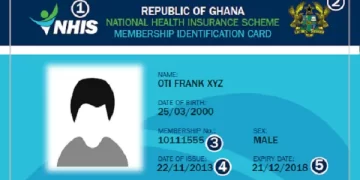The Fair Wages and Salaries Commission will evaluate the over a decade-old Single Spine Salary Structure in the coming months.
The government started adopting the pay policy in 2010 in order to manage the payment of public service employees’ wages and to ensure improved public sector compensation.
Earl Ankrah, the Fair Wages and Salaries Commission’s Head of Public Affairs, told Citi News that the policy is being examined.
“The single spine pay policy has been implemented for about 10 years now, and it has become necessary for a policy of this nature to be reviewed. The consultants that put the policy together actually recommended that occasionally there should be such reviews. This is why government and partners are considering a review of the policy,” he said.
Mr. Ankrah said in other forums that the Commission cannot conduct the process alone and would include all key parties, including program recipients and employers.
“It is a herculean task, which will involve all stakeholders. So, all the social partners will sit down and decide,” he said.
Despite the fact that it was well-intended for the benefit of public sector employees, commentators have urged for a revision owing to inconsistencies and the strain it places on government spending.
For example, the Trades Union Congress (TUC) has repeatedly advocated for a revision of the Single Spine Salary Structure (SSSS), claiming that it has not achieved its objective.
“Pay in the public sector is still very low. Pay inequalities are still very wide and there is an energetic attempt by some public sector entities to exit the SSSS, with some having already exited, bringing us back to the previous situation when there were multiple bargaining sectors within the public sector,” Dr Kwabena Nyarko Otoo, Director of the Labour Policy and Research Institute of the TUC, said at an Economic Forum on the 2021 mid-year budget in Accra in August last year.
Angel Carbonu, President of the National Association of Graduate Teachers, asked for a reassessment of the policy in 2019, claiming that the regulation has allowed the State to take advantage of public sector workers.
“I don’t think in this country we pay more than we work. I will say, rather in this country, the state is taking advantage of the people and the state is undercutting people who work to contribute to the development of our country… if the salary of a Ghanaian teacher averagely is just $300, with some paid below $300, there are people who get as low as $200,” he said.
Read Also: Mobile network operators to publish list of centres for SIM re-registration
SOURCE: CITINEWS



























